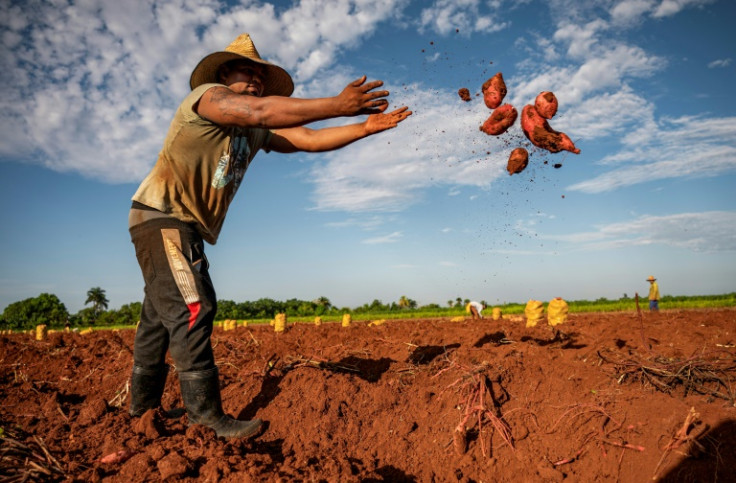
Senior Cuban officials opened up Wednesday about the ongoing economic crisis in the country, saying that food production and pharmaceutical supplies alongside transportation were at least 50% less compared to 2018.
The officials said in televised prime-time appearances that the economy of Cuba continued to fall due to food and fuel shortages. Furthermore, Cuba imported most of the fuel and food items from other countries. However, the revenue has been negatively impacted following the COVID-19 pandemic, sanctions imposed by the U.S. and less tourism.
Agriculture Minister Ydael Jesus Perez said the production of staple food items like pork, rice and beans was 80% less, while eggs fell to 50%.
"It has only been possible to acquire 40% of the fuel, 4% of the fertilizer and 20% of the animal feed required," the minister added, Reuters reported.
Deputy Health Minister Tania Margarita Cruz noted that hospitals were also short on basic supplies, including sutures, cotton and gauze, adding that there were 30% fewer surgical operations done compared to 2019. Furthermore, nearly 68% of basic pharmaceuticals were either short in supply or not available at all.
Transportation Minister Eduardo Rodríguez emphasized the importance of public transportation in any country to ensure there were fewer vehicles on the road.
He noted that four years ago there were 2,500 buses operating in Havana, but today only 300 buses routinely plied. He went on to explain that there was a shortage in fuel and spare parts too.
The Cuban officials pointed out that the domestic freight traffic also reduced to half and the industry's operating capacity was only 35%, compared to 2019.
Cuban economist Omar Everleny said, "The ministers provided new information revealing just how serious the crisis is and that growth this year is very doubtful.
Earlier this month, Cuba hosted more than 800 companies from over 60 countries in order to seek new investments during a business fair, despite the United States sanctions.
The economic embargo against Cuba doesn't allow the country to trade or perform any commercial activities with the U.S.
The embargo has been enforced through various acts, including the Trading with the Enemy Act of 1917, the Foreign Assistance Act of 1961, the Cuban Assets Control Regulations of 1963, the Cuban Democracy Act of 1992, the Helms–Burton Act of 1996, and the Trade Sanctions Reform and Export Enhancement Act of 2000.
© 2025 Latin Times. All rights reserved. Do not reproduce without permission.







